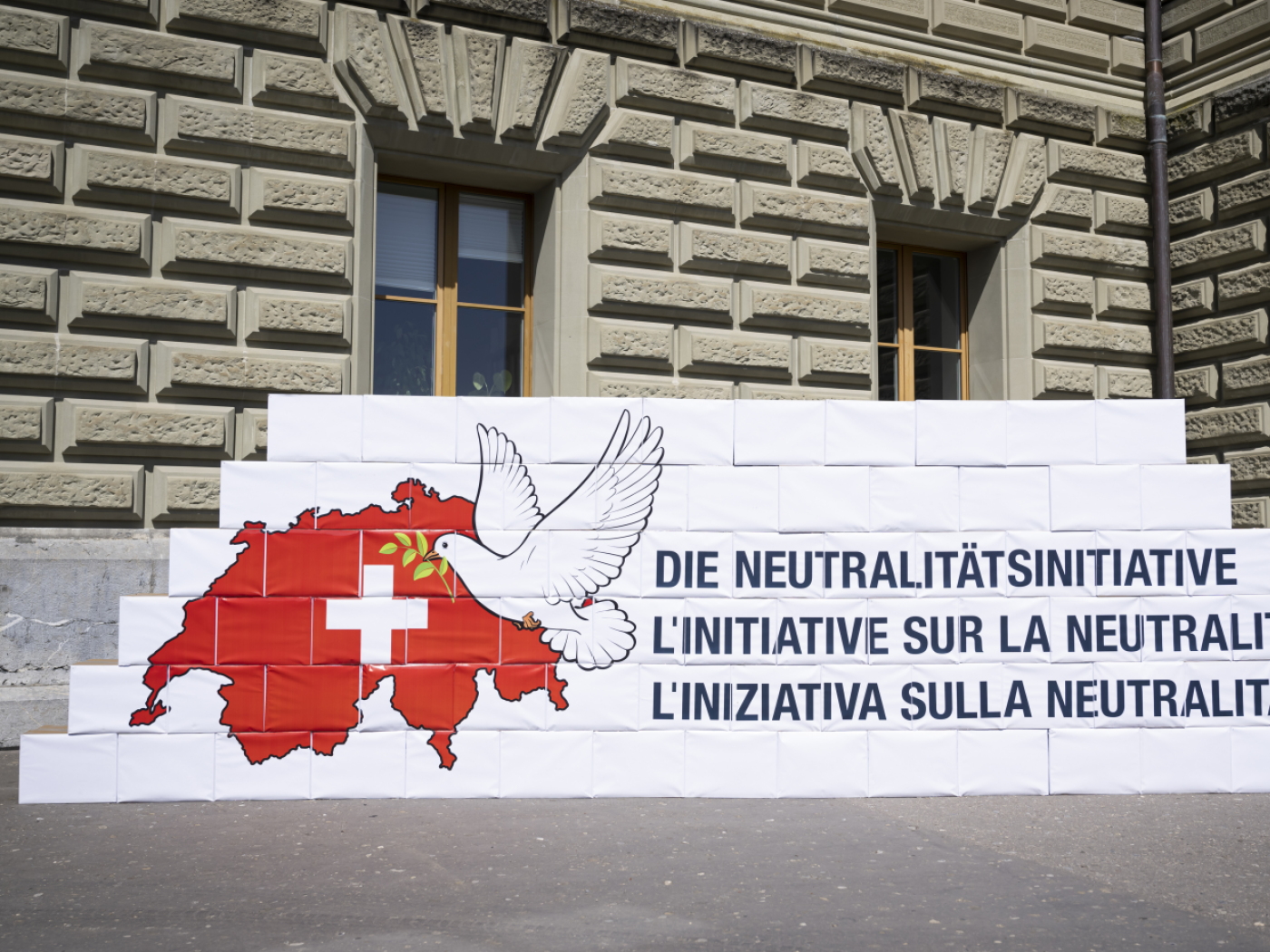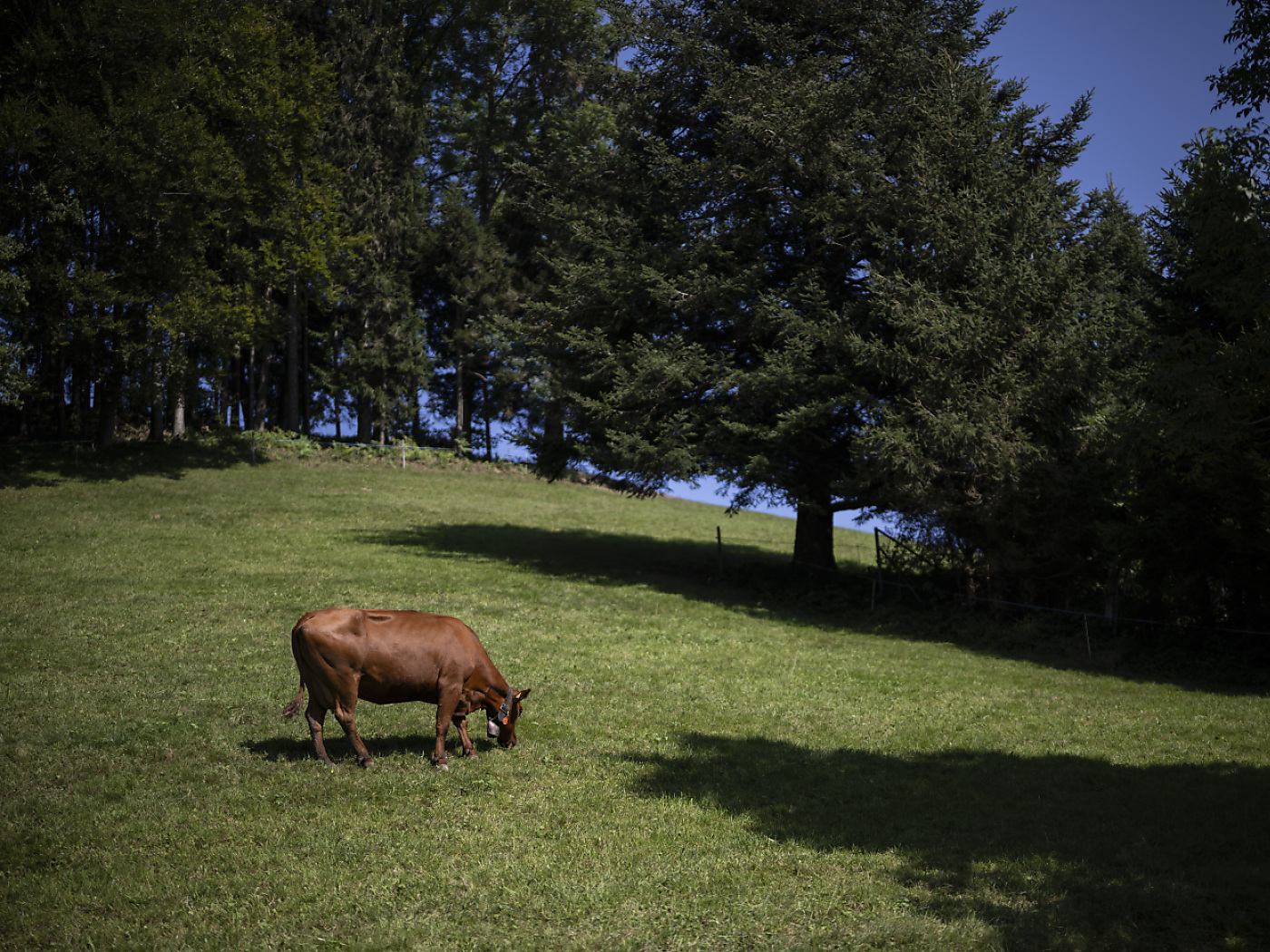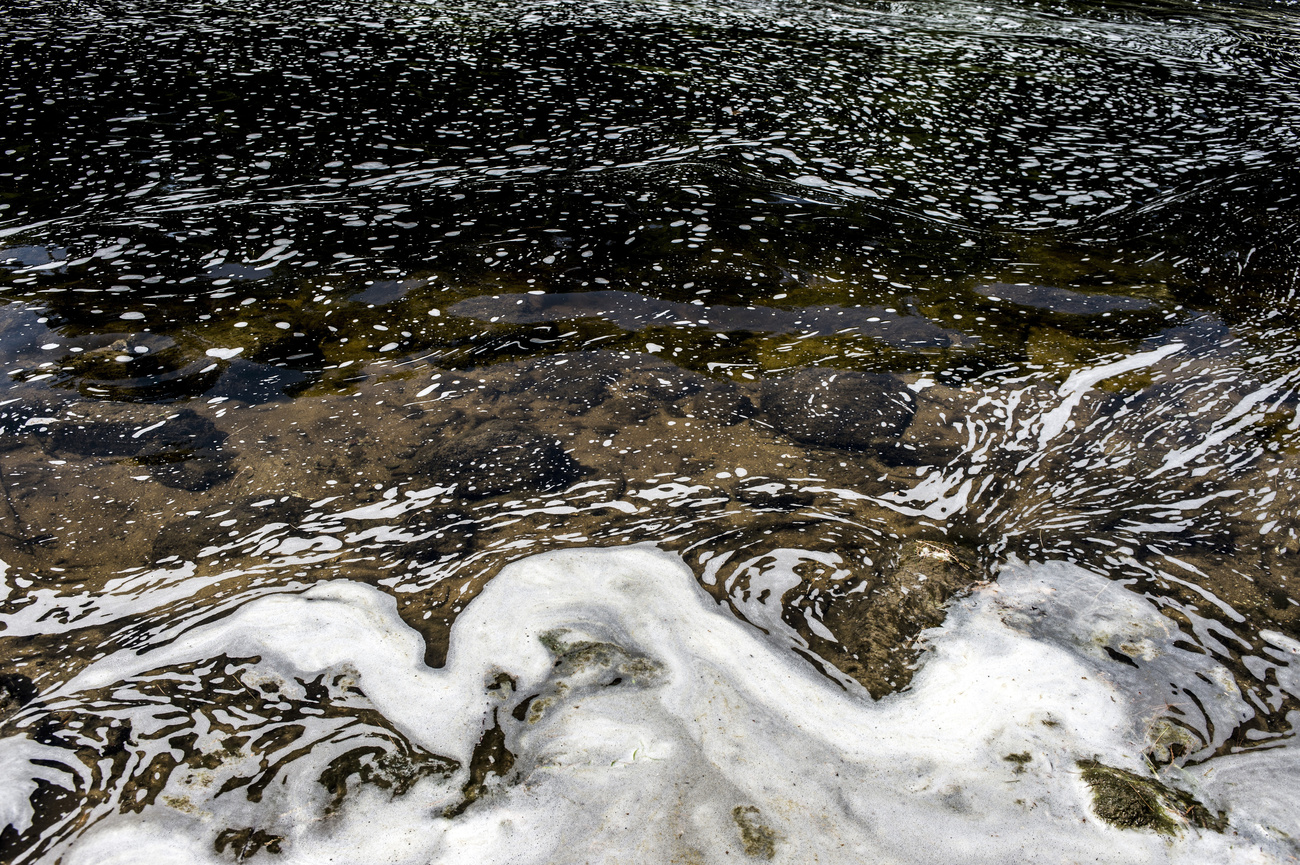
Swiss authorities draw up new rules to manage PFAS

The Swiss federal authorities are working on drawing up regulations for PFAS “forever chemicals”. A government report on this complex issue is expected by the end of the year with a possible action plan.
+Get the most important news from Switzerland in your inbox
PFAS stands for per- and polyfluoroalkyl substances. It is an umbrella term for a family of thousands of chemicals that are prized for their indestructible and non-stick properties. These so-called “forever chemicals” can enter the food chain – especially meat, milk and eggs – from contaminated soil, animal feed or drinking water for animals.
On Tuesday, representatives from various Swiss federal offices and the cantons gave an insight into the ongoing work on new regulations for dealing with PFAS. The aim is to minimise the risks to the environment and health, they declared.
“In Switzerland, PFAS pollution is widespread,” Christiane Wermeille, head of the waste and raw materials division at the Federal Office for the Environment (FOEN), told reporters in Bern. Traces of PFAS were found in around half of the underground water pipes analysed in Switzerland, often in very small quantities.

More
‘We must break the taboo that ‘forever chemicals’ are indispensable’
A report in response to a parliamentary postulate will now determine whether a national action plan is necessary. The Federal Council is due to publish the report at the end of 2025.
In the meantime, a consultation procedure was recently launched. It aims to bring Swiss regulations in line with those of the European Union, which are stricter, for example, on the marketing of microplastics.
Fire-fighting foam
PFAS pollution is present at sites where fire-fighting foam containing PFAS has been used during exercises, for example. Remediation measures are then possible.
The situation is more difficult to resolve in the case of pollution from long-existing sources. According to the FOEN, large-scale interventions are virtually impossible, given the large surface areas to be remediated.
+ Research identifies 134 ‘forever chemicals’ hotspots across Switzerland
Parliament has passed several motions calling for stricter limits, the clean-up of contaminated sites and an action plan.
“Four working groups have been at work for a year,” said Wermeille. The Federal Council is expected to discuss corresponding reports and amendments to ordinances before the end of the year.
A parliamentary motion in 2022, for example, called on the Federal Council to rapidly establish the legal framework so that the cantons, which are responsible for implementing remediation measures, can carry out their task properly.
+ Undesirable chemicals found in bodies of Swiss residents
The working groups are currently drawing up PFAS limit values, said Wermeille. However, measures must be affordable and proportionate.
Values to be tightened soon
For drinking water, limit values were defined in 2016. These should be tightened by 2026 in Switzerland to bring them into line with those of the EU, said Mark Stauber of the Federal Food Safety and Veterinary Office.

More
‘Forever chemicals’ detected at half of Swiss groundwater sites
The cantons for their part have been conducting drinking water monitoring campaigns. An analysis in 2023 showed that out of 564 tested areas, 21 contained PFAS. None exceeded Swiss limit values, but 5 were above EU values.
PFAS monitoring is also due to be set up for animal foodstuffs in Switzerland.
“There is no such thing as zero risk,” said Stauber. However, the aim is to ensure that the population consumes as little PFAS-contaminated food as possible.
Translated from French by DeepL/sb
This news story has been written and carefully fact-checked by an external editorial team. At SWI swissinfo.ch we select the most relevant news for an international audience and use automatic translation tools such as DeepL to translate it into English. Providing you with automatically translated news gives us the time to write more in-depth articles.
If you want to know more about how we work, have a look here, if you want to learn more about how we use technology, click here, and if you have feedback on this news story please write to english@swissinfo.ch.

In compliance with the JTI standards
More: SWI swissinfo.ch certified by the Journalism Trust Initiative













































You can find an overview of ongoing debates with our journalists here . Please join us!
If you want to start a conversation about a topic raised in this article or want to report factual errors, email us at english@swissinfo.ch.